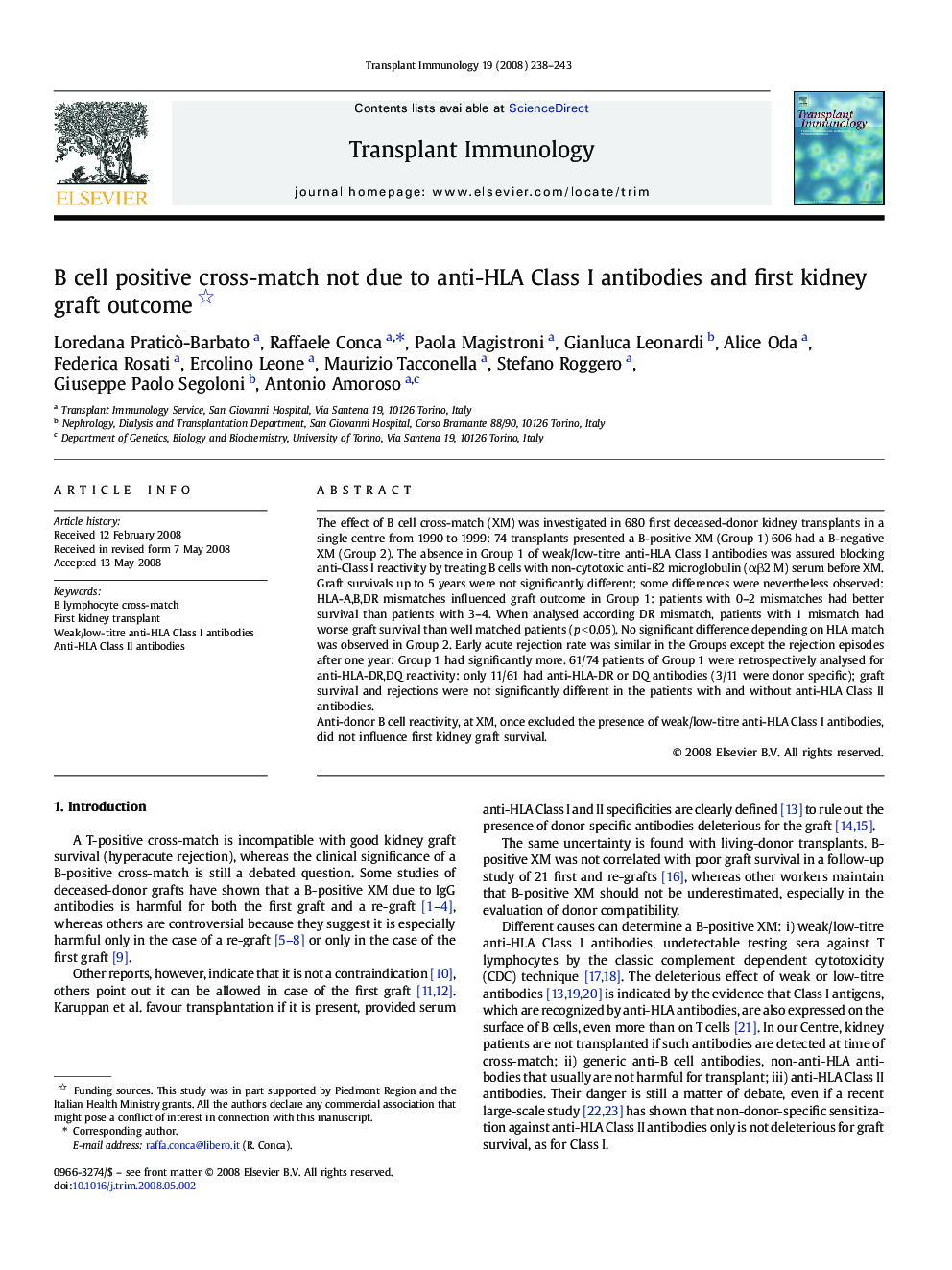| Article ID | Journal | Published Year | Pages | File Type |
|---|---|---|---|---|
| 3392582 | Transplant Immunology | 2008 | 6 Pages |
The effect of B cell cross-match (XM) was investigated in 680 first deceased-donor kidney transplants in a single centre from 1990 to 1999: 74 transplants presented a B-positive XM (Group 1) 606 had a B-negative XM (Group 2). The absence in Group 1 of weak/low-titre anti-HLA Class I antibodies was assured blocking anti-Class I reactivity by treating B cells with non-cytotoxic anti-ß2 microglobulin (αβ2 M) serum before XM.Graft survivals up to 5 years were not significantly different; some differences were nevertheless observed: HLA-A,B,DR mismatches influenced graft outcome in Group 1: patients with 0–2 mismatches had better survival than patients with 3–4. When analysed according DR mismatch, patients with 1 mismatch had worse graft survival than well matched patients (p < 0.05). No significant difference depending on HLA match was observed in Group 2. Early acute rejection rate was similar in the Groups except the rejection episodes after one year: Group 1 had significantly more. 61/74 patients of Group 1 were retrospectively analysed for anti-HLA-DR,DQ reactivity: only 11/61 had anti-HLA-DR or DQ antibodies (3/11 were donor specific); graft survival and rejections were not significantly different in the patients with and without anti-HLA Class II antibodies.Anti-donor B cell reactivity, at XM, once excluded the presence of weak/low-titre anti-HLA Class I antibodies, did not influence first kidney graft survival.
